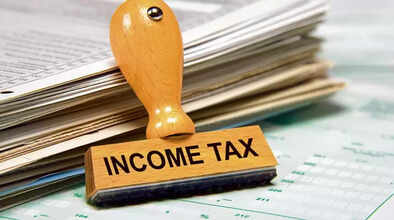Income Tax Tips: Income Tax keeps a close watch on these 5 transactions, action is taken within minutes..

Actually, in the era of digitalization, cash transactions are rarely done. But sometimes people prefer to transact in cash. In such a situation, if you mostly deal in cash, then let us tell you that the Income Tax Department may be keeping an eye on you. The departments are keeping an eye on your every transaction. The Income Tax Department has become very cautious about cash transactions these days. Over the past few years, the Income Tax Department has tightened the rules for cash transactions for the general public on various investment platforms like banks, mutual fund houses, broker platforms, etc. In such a situation, the Income Tax Department can send you a notice on any big deal.
Let us tell you that many such transactions are monitored by Income Tax. If you do large cash transactions with banks, mutual funds, brokerage houses, and property registrars, they have to inform the Income Tax Department. Let us know about 5 such transactions, which can put you in trouble.
1 Bank Fixed Deposit (FD):
If you are depositing Rs 10 lakh or more in FD once or more than once a year, the Income Tax Department may ask you for information about the source of the money. If possible, deposit most of the money in FD through an online medium or cheque.
2 Bank Savings Account Deposit:
If a person deposits an amount of Rs 10 lakh or more in cash in one or more accounts in a financial year, then the Income Tax Department can question the source of the money. The maximum limit in current accounts is Rs 50 lakh.
3 Payment of Credit Card Bill:
If you deposit more than Rs 1 lakh in cash at a time in the form of credit card bills, the Income Tax Department may question you. At the same time, if you pay credit card bills of more than Rs 10 lakh in cash in a financial year, you may still be asked about the source of the money.
4 Property Transaction:
If you make a big transaction in cash with the property registrar, then its report also goes to the Income Tax Department. If you buy or sell a property worth Rs 30 lakh or more in cash, the information will be sent to the Income Tax Department through the property registrar.
5 Purchase of Shares, Mutual Funds, Debentures and Bonds:
If you do large cash transactions in shares, mutual funds, debentures, and bonds, you may face problems. Only a maximum of Rs 10 lakh cash transactions can be done in such instruments in a financial year. So if you have any plan to invest money in any of these, then the first thing to keep in mind is that you do not have to use large amounts of cash.
Follow our Whatsapp Channel for latest update

